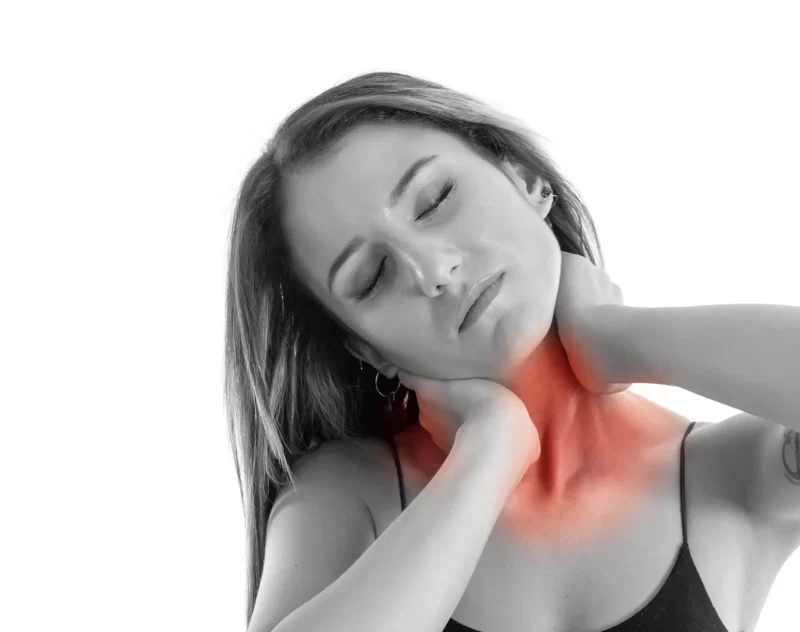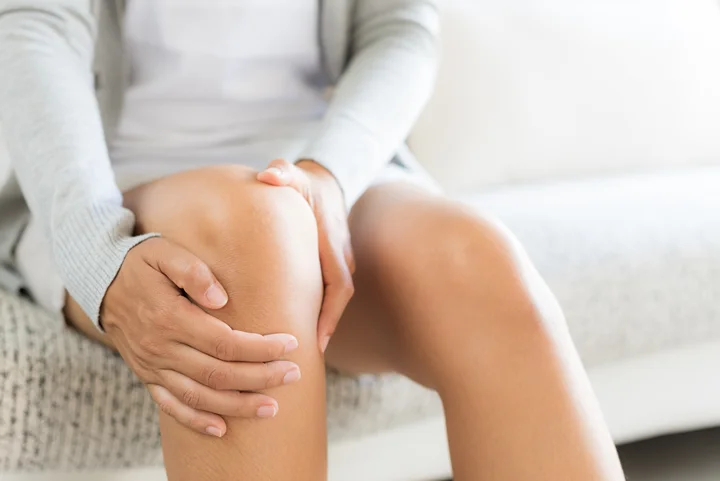What are the Treatment Options for Joint Pain Caused by Hypothyroidism?

Hypothyroidism refers to the autoimmune condition where the thyroid gland doesn’t release enough thyroid hormones into your bloodstream. This can cause a lot of your body functions to slow down and instigate various symptoms, one of which is joint pain.
So what are the treatment options available for joint pain caused by hypothyroidism? Some include exercise, quality sleep, and stress management, while medications and surgeries are for those with severe cases.
Regenerative therapy has helped countless patients look and feel like the person they were years before. Call us today to book your regenerative therapy consultation.
Link Between Hypothyroid Conditions and Joint Health
The thyroid gland is a small, butterfly-shaped organ tucked underneath the larynx or the voice box. It produces hormones that control everything from digestion, moods, body temperature, muscle control, metabolism, to heart function. If it produces too much or too little of these hormones, you might start experiencing health problems.
Hypothyroidism is when the thyroid gland is underactive – meaning, it doesn’t produce enough thyroid hormones to meet your body’s needs. Hyperthyroidism, on the other hand, is when you have an overactive thyroid gland.
Causes of Hypothyroid Conditions
Low thyroid hormone levels may upset the balance of chemical reactions in the body and slow down many bodily functions. This can be caused by the following, although not limited to:
- Autoimmune disorders: Autoimmune disorders happen when your body’s immune system produces antibodies that attack your own tissues. There’s no scientific explanation for this yet. Nonetheless, these antibodies affect the amount of hormones the thyroid gland releases.
- Hyperthyroidism treatments: Over-response to hyperthyroidism treatment may result in decreasing thyroid hormone production too much.
- Radiation therapy: This is used to treat cancers of the neck and head. It may also result in an underactive thyroid gland.
- Thyroid surgery: Should your entire or a large part of your thyroid gland stop producing hormones, you may need to take thyroid hormones for the rest of your life.
- Certain medicines: One example is lithium, a medication prescribed for some psychiatric disorders but can also have an effect on the thyroid.
Three Types of Hypothyroidism
- Primary hypothyroidism’s most common cause is Hashimoto’s thyroiditis – an autoimmune disease that causes antibodies that attack the cells in your thyroid gland.
- In secondary hypothyroidism, the issue isn’t your thyroid but rather pituitary gland damage that results in insufficient production of the thyroid hormone.
- Similar to the secondary type, the condition is called tertiary hypothyroidism when the root cause is hypothalamic damage.
Signs and Symptoms
Hypothyroidism is a silent killer. Signs and symptoms, such as the following, sometimes go unnoticed for years and vary depending on the thyroid hormone deficiency:
- Constipation
- Dry skin
- Hair loss
- Weight gain
- Muscle pain
- Slowed heart rate
- Constant fatigue or depression
- Pins and needles
- Muscle weakness
- Heavy or irregular periods
- Thinning hair
- Impaired memory
- High cholesterol
- Insomnia
- Balance and coordination problems
- Decrease in libido
- Urinary and respiratory tract infections
- Anemia
- Increased sensitivity to cold
- Puffy face
- Enlarged thyroid gland (goiter)
How to Reduce Hypothyroidism Joint Pain

There is no sure-fire way to prevent hypothyroidism joint pain, but there are methods you could do to alleviate it.
1) Pinpoint Other Sources of Joint Pain
Don’t be so quick to point to hypothyroidism as the leading cause of your joint pain. Keep in mind that hypothyroidism usually happens when your thyroid is mistakenly attacked by antibodies and therefore affects hormone production.
In a similar vein, rheumatoid arthritis, an autoimmune and inflammatory disease, also causes your immune system to go off-track. Your body ends up damaging its joints, cartilages, and some bones.
If you have either hypothyroidism or rheumatoid arthritis, you become prone to getting the other. And it can even be difficult to determine which disorder is the underlying reason for your joint pain.
2) Low-Impact Aerobics and Yoga
Don’t force yourself to power through high-intensity workouts. Start with low-impact activities, like aerobics and walking, to get your joints moving. If possible, look for a certified personal trainer that you trust.
Yoga, specifically, helps take a lot of pressure off the joints by promoting balance, better posture, and muscle strength. Moving through yoga poses increases blood flow, whereas holding the poses engages your muscles. You’d also be hitting two birds with one stone because yoga helps with stress reduction and thus releases tension in the joints.
A study found that men who had hypothyroidism experienced improved thyroid function and weight loss after incorporating regular physical exercise – one hour a day – into their routine. Some exercise is still better than no exercise at all.
3) Strength Training
Excess weight adds more stress to your joints. Exercise, particularly strength training, does more than just weight loss. It maintains your joints’ flexibility. Strength training, in particular, can ease joint pain, stiffness, and swelling.
Stronger muscles mean joint protection. Strengthening exercises include squats, lunges, and leg lifts. Do 3 sets of 15 repetitions of each at least twice a week. Make sure to activate all muscle groups. But if you’re too exhausted to finish your entire exercise routine, break it up into short bouts.
4) Enough Sleep
Sleep isn’t only for forgetting about your other life stresses. It’s also a vital time for your joints and muscles to repair themselves. If you get seven to nine hours of quality sleep, your body will be able to recuperate quickly.
Moreover, sleep deprivation triggers the hormones leptin and ghrelin which drive up your appetite levels. What happens when you’re hungrier than usual? You eat more. Gain weight. Then have health issues on the way.
5) Healthy Diet
Healthy diet entails a healthy weight. As mentioned, carrying extra pounds may add pressure to the joint. So building a healthy hypothyroidism diet is essential in resolving joint pain.
Rule of thumb is to avoid junk food and to follow a well-balanced diet that is not rich in fat or sodium. Eat antioxidants like fresh fruits and vegetables; fatty fish as a source of omega-3 fatty acids that aids in inflammation reduction; and carotenoid sources (sweet potatoes and broccoli).
If you have autoimmune Hashimoto’s, a gluten-free diet might be more suitable for you. Remember to discuss with your doctor if you’ll ever have plans of any changes to your diet and vitamin supplementation.
6) Meditation
Mindfulness meditation is being in tune with yourselves, and that includes knowing what triggers you. It distracts yourself from what’s been bothering your mind and refocuses your attention to your breathing. Its calming effect is an effective way to reduce stress.
The research findings of a 2018 study suggested that meditation may help decrease pain sensitivity. You can get started by using a meditation app, listening to a YouTube video, or closing your eyes and notice how heavy or light your breathing is for five minutes.
7) Hot and Cold Therapy
Apply an ice pack or a bag of frozen vegetables to the painful area for quick relief. Never apply ice directly to the skin as this could cause frostbite in minutes. As for heat treatments, you can take a long, warm shower to ease stiffness or use an electric blanket while sleeping.
8) Medical Treatment
To replenish thyroid hormone levels, doctors usually prescribe either synthetic thyroxine or radioactive iodine supplements. Non-steroidal anti-inflammatory drugs (NSAIDs) and steroids are also given to lessen inflammation. If ever the joint pain is severe, other supplements – like thyroxine, calcium, and vitamin D – may be taken in concomitant.
For significant cases, the following may be recommended by a doctor:
- Thyroid surgery
- External radiation
- Recombinant human TSH
In most cases, a patient with hypothyroidism will need to take medications for the rest of their life.
When to See A Doctor
If you’re experiencing any of the symptoms of hypothyroidism or you’re feeling tired for no reason, seek medical attention immediately. For an accurate diagnosis of your thyroid condition, a simple blood test will do.
If you’ve been undergoing hormone therapy for hypothyroidism, book follow-up appointments as often as your doctor’s advice. Your medicine dosage may also change overtime.
Remember that patients with hypothyroidism are at a higher risk of developing other autoimmune illnesses like rheumatoid arthritis. If your body pains still don’t improve after adequate treatment, inform your doctor. There may be other probable causes.
Know More About Functional Medicine for Joint Pain at aNu Aesthetics
People with hypothyroidism have an underactive thyroid and thus have less metabolism-controlling hormones. Hypothyroidism comes with a wide range of symptoms – joint pain being one of them. Luckily, these effects can be treated by being proactive: You can do certain activities and take medications that may help ease the pain.
We at aNu Aesthetics make use of functional medicine to alleviate our patients’ joint pain, health concerns, and lifestyle problems. We provide quality healthcare services that help our patients achieve overall well-being. Book an appointment with our healthcare providers today.
Regenerative therapy has helped countless patients look and feel like the person they were years before. Call us today to book your regenerative therapy consultation.